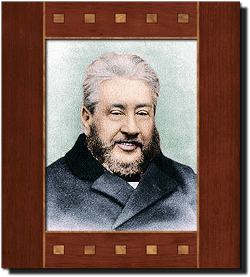[Revisions of the manuscript, in the light of some excellent input I've gotten, continues. In this thread, I solicited suggestions for posts that readers thought worth another go. The greatest surprise to me was that (A) anyone, let alone (B) so many, really wanted to see my three-part testimony again. So now we reach back to February 13, 2007 for that (lightly-edited) word of praise to God for His grace, and encouragement for those speaking to hard-hearted, seemingly hopeless-case mockers.]Can you name dates on which your life literally turned around, forever?
Significant dates. Pardon my duh, but the most obvious is one's birthday. That's rather a sine qua non, on a personal level. We'll just stipulate that we've all had one, and move on.
 For those to whom it applies, another has to be one's wedding anniversary, and I'd certainly second that as mine [March 19] approaches. Though a lot led up to that date, for a Christian, the date itself signals changes that affect virtually every region of one's world. No longer can one think in terms of one; one must think in terms of two in finances, socializing, use of idle time, everything.
For those to whom it applies, another has to be one's wedding anniversary, and I'd certainly second that as mine [March 19] approaches. Though a lot led up to that date, for a Christian, the date itself signals changes that affect virtually every region of one's world. No longer can one think in terms of one; one must think in terms of two in finances, socializing, use of idle time, everything.Then I'd list the day I enrolled in my first pastoral training course, the day I started learning Greek, ditto for Hebrew; the day I enrolled in Talbot, the day I graduated, the day I took my first senior pastorate (and the day I left it). A host of dates argue for inclusion.
 But granted the foreordained necessity of my existence, my first pivotal date is itself undatable. It takes place in eternity past, in the counsels of the Trinity. It is that moment when the Father saw my helpless and hopeless estate, "knew" me, set His eternal love on me, and gave me to the Son for the securing of my salvation (John 17:6; Ephesians 1:4-11; 2 Timothy 1:9, etc.). At that moment, the course of my life forever was assured (Romans 8:29-30), as on the Cross it was secured (Matthew 20:28; Acts 20:28; Hebrews 9:12).
But granted the foreordained necessity of my existence, my first pivotal date is itself undatable. It takes place in eternity past, in the counsels of the Trinity. It is that moment when the Father saw my helpless and hopeless estate, "knew" me, set His eternal love on me, and gave me to the Son for the securing of my salvation (John 17:6; Ephesians 1:4-11; 2 Timothy 1:9, etc.). At that moment, the course of my life forever was assured (Romans 8:29-30), as on the Cross it was secured (Matthew 20:28; Acts 20:28; Hebrews 9:12).How this played out in my life is of no great global significance, though its impact in my life is literally incalculable.
Caveat: please read through to the end, or don't bother to read at all, and no hard feelings. The incomplete story will be the wrong story.
But I was raised without Christian witness at home. In keeping with my culture and the media I developed a growing and deepening contempt for Christianity in general, and Christians in particular. I passed through a very young atheist phase, to agnosticism, then at the start of the '70's to a pre-new-age cult known as Religious Science (or Science of Mind) in my early teens.
My cult. The message of Religious Science, founded in 1927 by Ernest Holmes, was what I wanted to hear. God was in all of us, expressed itself as all of us, demanded nothing, gave everything. There was no sin per se, and any harm we did to others, they brought on themselves by their state of mind. There was no Hell nor sin to be saved from, so no salvation to be sought, nor any Savior to be chained to nor obeyed.
"Deeper sense." Jesus was the perfect embodiment of this divine principle, but any human being could be the same as He. Christians, idiots that they always have been, hopelessly muddled the Bible in general and Jesus' teachings in particular. (Anticipating the Emergents by a good thirty years — as they were anticipated in every vaunted "innovation" — we sneered at [Biblical] Christianity as hopelessly "Western.)
We Religious Scientists reclaimed those real teachings of Jesus by seeking and finding the "deeper sense" in His words, a deeper sense — which often turned out to be the opposite of their plain sense. But that wasn't surprising. Jesus was a mystic, and men have always botched the teachings of mystics.
All of this held great theoretical promise and relief for me. I really was the center of the universe, as I'd always suspected; and my desires really were paramount. I was blamable for nothing, beholden to no one, and could have everything merely by developing my consciousness of the divine I AM within me. My own heart held the key to all; to find myself was to find God, to delve within myself was to be one with Him/Her/It.
There were only two catches in my journey.
Minor catch: Jesus. The minor "catch" in my seamless picture was Jesus. When I was about 16, I actually wrote a play based on the four Gospels, from the Religious Science perspective. I found that I kept having to "help" Jesus out, because He expressed Himself (to my mind) so poorly. Let me explain.
Jesus meant to say what we Religious Scientists said, but He kept saying it so badly!! He meant
 to say that Hell was unreal, not a place of God's wrath, just a phase of consciousness; and that we could save ourselves from that consciousness at any time. But He kept speaking of it as if it were an objective place of immense and eternal torment (Matthew 5;22, 29-30; 10:28; 18:9; 23:33; Mark 9:43, 43, 47). He even spoke of fearing God for His ability to throw us into this Hell (Luke 12:5). He really needed our help to clear up these muddy bits.
to say that Hell was unreal, not a place of God's wrath, just a phase of consciousness; and that we could save ourselves from that consciousness at any time. But He kept speaking of it as if it were an objective place of immense and eternal torment (Matthew 5;22, 29-30; 10:28; 18:9; 23:33; Mark 9:43, 43, 47). He even spoke of fearing God for His ability to throw us into this Hell (Luke 12:5). He really needed our help to clear up these muddy bits.And Jesus seemingly kept harping on Himself, making Himself the issue, when He should have been making it clear that we're all the same, all equally manifestations of God. Jesus kept saying things such as that He would give himself as a ransom for many (Matthew 20:28), pouring out His blood to secure forgiveness of their sins (Matthew 26:28). This was all wrong, to us—both the implication that sin was an objective reality, and that His death would do anything about it. He kept teaching that knowledge of the Father was dependent on personal knowledge of Him—Jesus—and calling men to Himself (Matthew 11:25-30).
John's Gospel in particular was full of such wrongheaded teaching. The worst of it, to me, was John 14:6—"Jesus saith unto him, I am the way, the truth, and the life: no man cometh unto the Father, but by me." I knew it couldn't mean what it seemed to mean... but it sure was obnoxious. Particularly because those idiot Jesus Freaks kept harping on it.
Most of us in the Science of Mind tried to "help" Jesus by explaining what He really meant when He said all these things, bringing out the "deeper meaning" of His words. I knew that the words couldn't mean what they seemed to mean. That was my story, and I stuck to it.
Until I tripped on the major catch.
Major catch: me. So (we believed) God is within all of us, and to know God, we must go within. Well, I did that. With great gusto, determination, absorption, and confidence. It was a great theory.
The problem was that what I found within was nothing like anything I'd ever want to call "God."
For the first years, I diligently applied the
But I finally did a rigorous, unblinking, warts-and-all inventory of myself. What I found appalled me. Everything circled around me. Every relationship, every endeavor was sheerly selfish. Friends, family, things, all arrayed on a hierarchy of utility to me.
 And what of that me, at the center? Selfish, bitter, moody, avaricious, lazy, arrogant, loveless. Lustful, but loveless. Dumb as a dung-beetle, on the large scale of things. Dumber.
And what of that me, at the center? Selfish, bitter, moody, avaricious, lazy, arrogant, loveless. Lustful, but loveless. Dumb as a dung-beetle, on the large scale of things. Dumber.And God? In my universe, God existed to serve me. Concocted to fulfill my demands, and customized to my desires. Created in my own image.
So, my religion was designed by me, to serve me, and rested upon me. It was from me, though me, and unto me, world without end, amen. I just found a "church" that agreed with me, confirmed my opinions, told me what I wanted to hear. But I was the foundation.
And what a foundation!
Crash. I was seventeen, and the impact of these realizations was devastating. I was undone. I was plagued by a sharp yet foglike sense of guilt, detachment, and dread. The foundation and authority for what I believed was destroyed. I was rocked to the core of my being.
What happened then?
Next time, Lord willing, I'll talk about how the minor became the major, and everything changed.
[This way to Part Two]



 That’s not a criticism, really: just one of those things Baptists have to say to Presbyterians in order to keep the prebsys on their toes and to maintain street cred with the weaker-brother Baptists.
That’s not a criticism, really: just one of those things Baptists have to say to Presbyterians in order to keep the prebsys on their toes and to maintain street cred with the weaker-brother Baptists. So if you have a marriage problem – like yours is bad – Jesus Christ is the solution. If you have poor people in your town that you think are causing problems, Jesus Christ is the solution. Your kids are spoiled rotten and you don’t know how to communicate with them? Jesus Christ is the solution. Your church is a miserable bore and you don’t “get anything out of it”? Jesus Christ is the solution.
So if you have a marriage problem – like yours is bad – Jesus Christ is the solution. If you have poor people in your town that you think are causing problems, Jesus Christ is the solution. Your kids are spoiled rotten and you don’t know how to communicate with them? Jesus Christ is the solution. Your church is a miserable bore and you don’t “get anything out of it”? Jesus Christ is the solution.

 Can't we all just get along?
Can't we all just get along?


 las! in these times, certain men glory in being weathercocks; they hold fast nothing; they have, in fact, nothing worth the holding. They believed yesterday, but not that which they believe today, nor that which they will believe tomorrow; and he would be a greater prophet than Isaiah who should be able to tell what they will believe when next the moon doth fill her horns, for they are constantly changing, and seem to have been born under that said moon, and to partake of her changing moods.
las! in these times, certain men glory in being weathercocks; they hold fast nothing; they have, in fact, nothing worth the holding. They believed yesterday, but not that which they believe today, nor that which they will believe tomorrow; and he would be a greater prophet than Isaiah who should be able to tell what they will believe when next the moon doth fill her horns, for they are constantly changing, and seem to have been born under that said moon, and to partake of her changing moods.
 ere's a brief e-mail exchange relative to our occasional discussions about "contextualization." I originally posted this on the first "Pyromaniac" blog several years ago, and it generated quite a conversation. Let's have a go at it again:
ere's a brief e-mail exchange relative to our occasional discussions about "contextualization." I originally posted this on the first "Pyromaniac" blog several years ago, and it generated quite a conversation. Let's have a go at it again:

 So in their response here, they blame everyone — everyone, that is, except themselves. It's
So in their response here, they blame everyone — everyone, that is, except themselves. It's  outmatched."
outmatched."
 The doctrine in this passage is shoe-leather doctrine. It says that those of us who are in the church must act like the church -- that it is necessary and not optional. And in that: we have to be building each other up. The older must teach the younger -- not merely systematics but pragmatics, like how to love one's husband and be submissive to him, how to be a self-controlled young man, how to grow old with dignity and sound in faith.
The doctrine in this passage is shoe-leather doctrine. It says that those of us who are in the church must act like the church -- that it is necessary and not optional. And in that: we have to be building each other up. The older must teach the younger -- not merely systematics but pragmatics, like how to love one's husband and be submissive to him, how to be a self-controlled young man, how to grow old with dignity and sound in faith.

 n these days we are rather overdone with "great thinkers." Wherever you go you hear of "advanced thinking," "modern thought," and so forth. It is true that ten bushels of the stuff are not worth half a farthing in the estimate of those who hunger for spiritual food; but chaff takes up much room, and as the wind blows it about it excites great attention.
n these days we are rather overdone with "great thinkers." Wherever you go you hear of "advanced thinking," "modern thought," and so forth. It is true that ten bushels of the stuff are not worth half a farthing in the estimate of those who hunger for spiritual food; but chaff takes up much room, and as the wind blows it about it excites great attention.


 others in different "binds."
others in different "binds."
 who luxuriate in any uncertainty they can magnify and exaggerate. These folks work so hard to blunt edges and blur lines, yet they strike grand and dramatic poses as great and brave Pioneers of the Void. They invest a lot of energy into convincing us how agonized they are by their noble doubts and uncertainties — though not with quite the energy with which they scald and upbraid anyone who dares to try to
who luxuriate in any uncertainty they can magnify and exaggerate. These folks work so hard to blunt edges and blur lines, yet they strike grand and dramatic poses as great and brave Pioneers of the Void. They invest a lot of energy into convincing us how agonized they are by their noble doubts and uncertainties — though not with quite the energy with which they scald and upbraid anyone who dares to try to 

 The list of endorsements of this book is as long as my arm. If you find it stuck on the shelf somplace spine-out, you'd probably buy it based on those endorsements. But here you have a book which, in a way far better than I have done in my few years in the blogosphere, hammers out the gracious necessity of the church for the believer, and points at convictional reasons for you people to go and find a church, join together with a church, worship God in a church, and be part of the church.
The list of endorsements of this book is as long as my arm. If you find it stuck on the shelf somplace spine-out, you'd probably buy it based on those endorsements. But here you have a book which, in a way far better than I have done in my few years in the blogosphere, hammers out the gracious necessity of the church for the believer, and points at convictional reasons for you people to go and find a church, join together with a church, worship God in a church, and be part of the church.

 Let's just say I'm glad there weren't too many other people around to observe my "power stance" whenever dracula flew by.
Let's just say I'm glad there weren't too many other people around to observe my "power stance" whenever dracula flew by. Somehow, the trophy wife was already able to fall asleep. Not me. I want to be awake when lockjaw sets in.
Somehow, the trophy wife was already able to fall asleep. Not me. I want to be awake when lockjaw sets in.

 es, and how many hours in a day ought a man to give to that kind of thing? Twenty-five out of the twenty-four would hardly be sufficient, for the phases of modern thought are innumerable, and every fool who sets up for a philosopher sets up a new scheme; and I am to spend my time in going about to knock his cardhouses over?
es, and how many hours in a day ought a man to give to that kind of thing? Twenty-five out of the twenty-four would hardly be sufficient, for the phases of modern thought are innumerable, and every fool who sets up for a philosopher sets up a new scheme; and I am to spend my time in going about to knock his cardhouses over?








